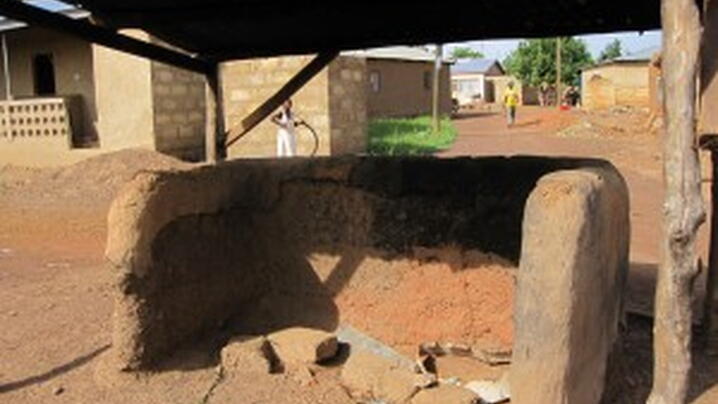
Did you know that harmful cookstove smoke is among the top five threats to public health in low-income countries? Some of the frightening effects of cookstove smoke include early childhood pneumonia, emphysema, lung cancer, and more chronic illnesses. The Global Alliance for Clean Cookstoves claims that exposure to this type of smoke, causes two million premature deaths each year, mainly affecting women and children.
For many of us living in developed countries, cooking requires minimal effort with one quick turn of the knob on our stove. However, for families in rural and urban areas of developing countries, cooking can entail much more laborious preparation. Edith Anumah, a native of the Volta region in Ghana, and Brazilian Delma Goncalves trek many miles to chop down trees for firewood that they then must dry for several days before using for baking purposes. Physical exhaustion is only one of the adverse effects associated with the type of cookstoves they use. I recently read two United Nations articles about these women, the hazardous smoke to which they and many others are exposed, and what the UN is doing to mitigate this problem.
The UN Women’s Fund for Gender Equality and the United Nations Development Programme recognized this problem and introduced several alternative stoves. In Brazil, UNDP funded a project that has created “eco-stoves” created from inexpensive, local materials including mud, sand, and clay. The new materials, in contrast to the traditionally used cement and iron, allow the stove to retain heat longer, even after the fire has gone out. In addition, since the stoves use firewood more efficiently, they produce less greenhouse gases. Delma Goncalves now has an eco-stove; her journeys searching for firewood have ended because now she can use small twigs, dry leaves, and bark for fuel, common items found in her backyard. Before, Delma would return home so exhausted without energy to cook, but now she has extra time for her children and household duties.
In Ghana, two NGOs funded by the UN Women’s Fund for Gender Equality have provided families with modern cookstoves fueled by liquefied petroleum gas. Edith Anumah is one of the women who now uses the green stove and confirms that “the gas is not only cleaner but also cheaper, and better for the environment.” No longer faced with the harms of hazardous smoke in her home, Edith is also pleased that the LPG allows her to cook a larger quantity of bread than before when firewood was her source of fuel.
As part of the Global Alliance for Clean Cookstoves, the United States Environmental Protection Agency also conducts clean cookstove research that addresses the harmful emissions of greenhouse gases which contribute to climate change. Located in North Carolina, the EPA’s cookstove test facility has the capability to compare the emissions of a variety of harmful gases and aerosols.
For the latest news on CityLinks projects and resources, remember to visit our website. To learn more about ICMA’s other international programs, click here or visit the International Dispatches blog on the Knowledge Network.
New, Reduced Membership Dues
A new, reduced dues rate is available for CAOs/ACAOs, along with additional discounts for those in smaller communities, has been implemented. Learn more and be sure to join or renew today!
